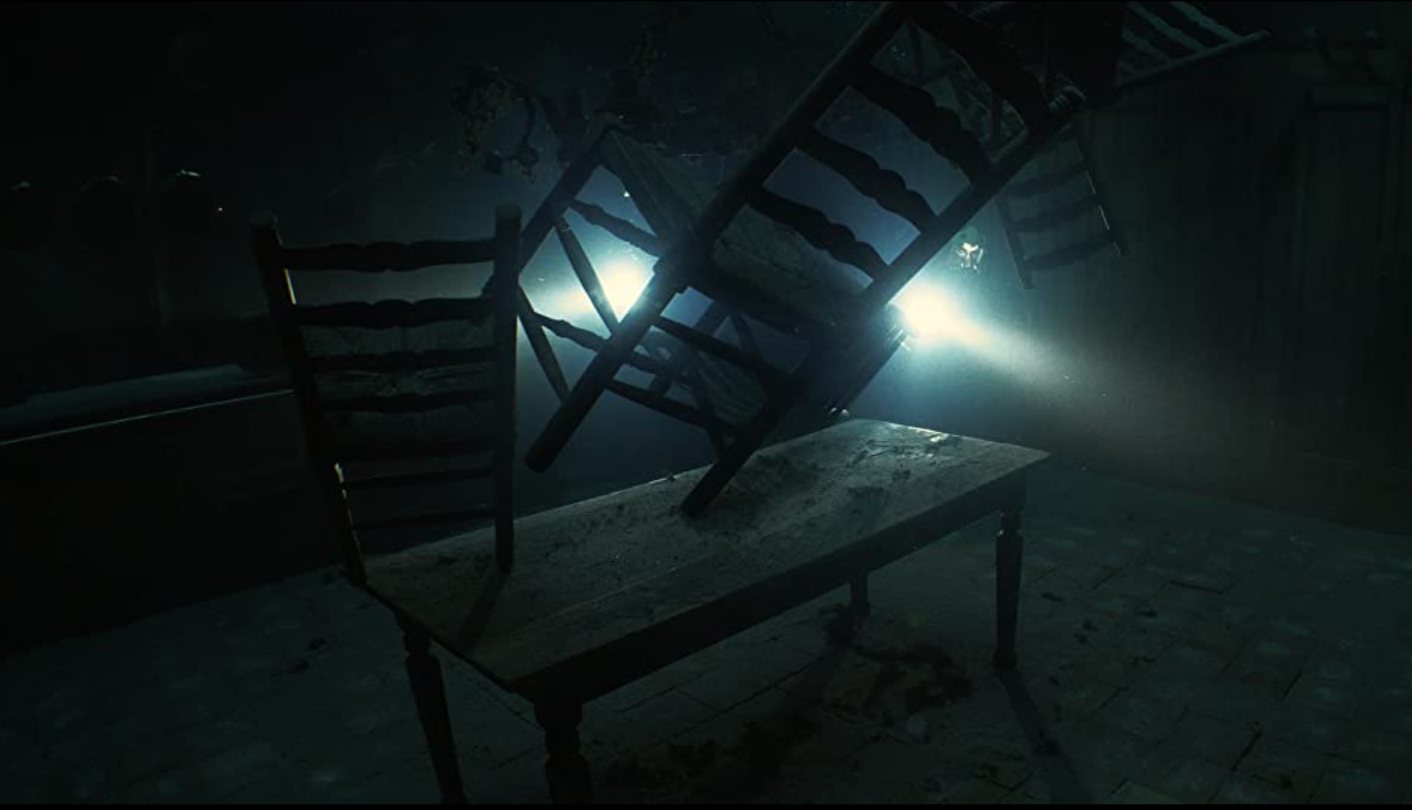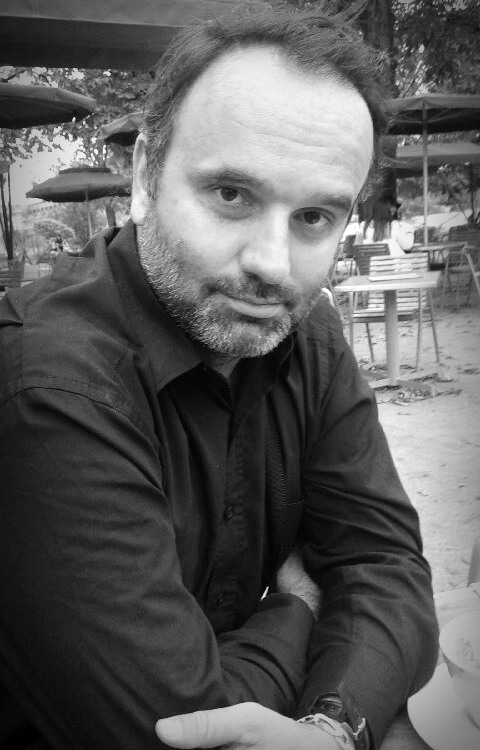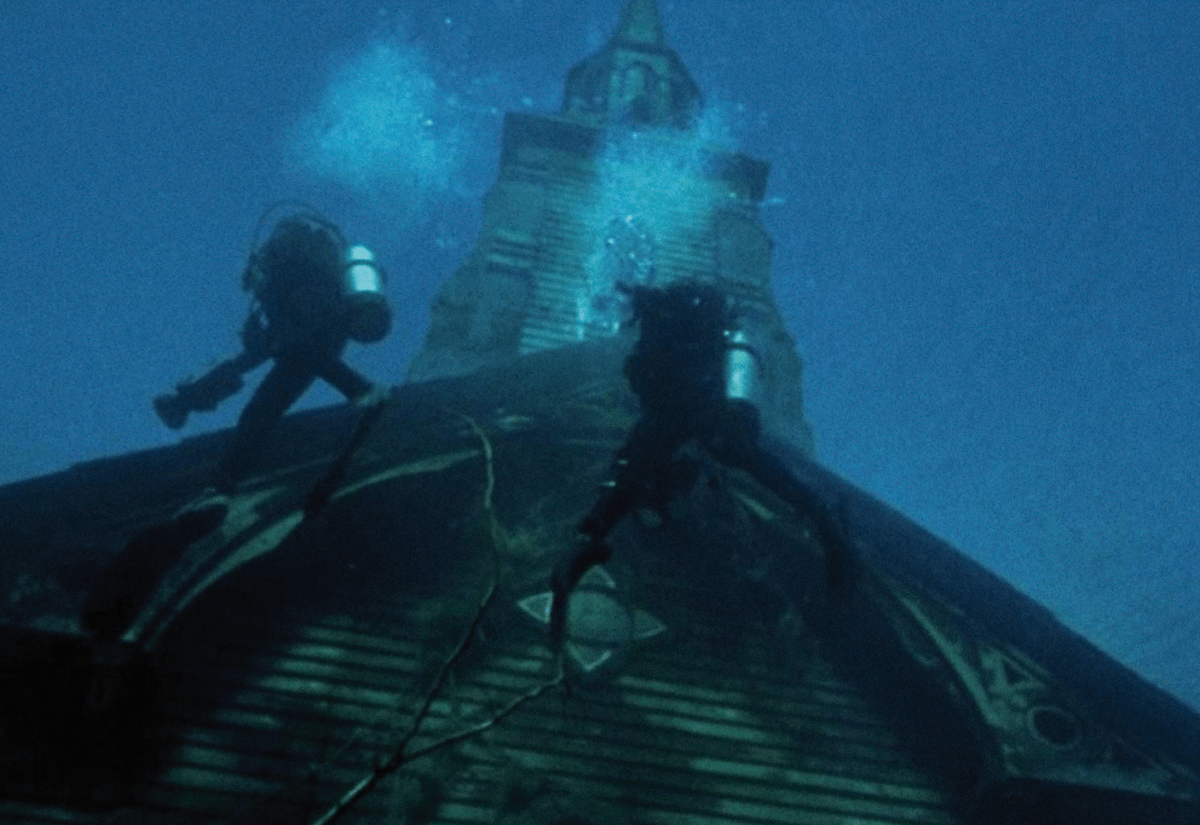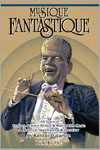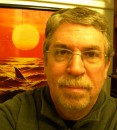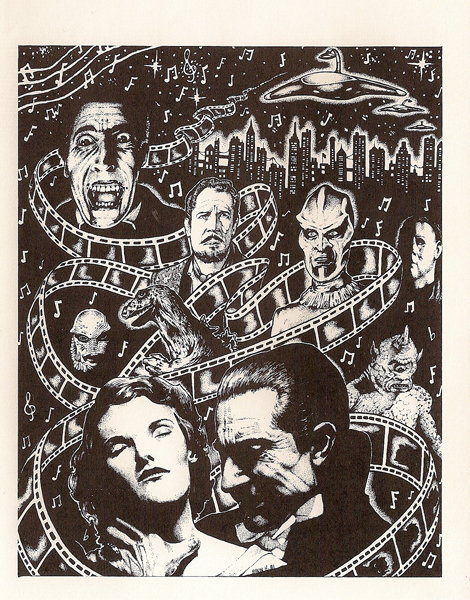September 3, 2021
Interview: Composer Raphaël Gesqua: Diving Into THE DEEP HOUSE


http://www.kronosrecords.com/K76.html
by Randall D. Larson
Parisian born Raphaël Gesqua is a French composer who specializes in video game and movie soundtracks. Active since 1989, he specialized in scoring short films and video games, including the popular Neko games CODE LYOKO: QUEST FOR INFINITY and CODE LYOKO: FALL OF X.A.N.A. in 2008. His first feature film score was for LIVID (2011), the second horror film for the French director team of Alexandre Bustillo and Julien Maury (after 2007’s INSIDE/À L’intérieur). Guesqua rejoined the directors for 2014’s AMONG THE LIVING (Aux Yeux Des Vivants/In the Eyes of the Living) and the same year for ABCs OF DEATH 2 (segment “X”), and now with THE DEEP HOUSE, which we discuss in the following interview.
In THE DEEP HOUSE, a young and modern couple go to France to explore an underwater house and share their findings on social media, but they undergo a serious change of plans when the couple enter the interior of a strange house located at the bottom of the sea and their presence awakens a spirit dark that haunts the house.
Watch THE DEEP HOUSE Trailer:
Q: How was it reuniting with Alexandre Bustillo and Julien Maury on THE DEEP HOUSE? It’s been several years since you worked with them on THE ABCs OF DEATH and AMONG THE LIVING…
Raphaël Gesqua: It was like getting back together with old friends after a few years of separation, even if in that case, it was only a professional break-up. To be honest, I consider myself privileged to only work with people I admire and consider them as friends, as Julien Maury and Alexandre Bustillo, as much as Paul Cuisset, Thierry Perreau, Pierre Adane and Philippe Dessoly for videogames. Each of them played a crucial role in my career, at different times. Last year I also worked with the great French actor Francis Renaud, who asked me to compose the soundtrack for his feature film FIRST LINE (aka Première Ligne), an excellent and quite moving tale about the Covid-19 crisis. And of course, not to forget very soon THE THING BEHIND THE DOOR (aka La Chose Derrière La Porte), a new feature film by my other friend Fabrice Blin, with who I have worked several times in the past on his short films (MISTER EVIL (aka Monsieur Méchant), MANDRAGORE) and his feature film documentary, SUPER 8 MADNESS.
Q: What were your initial discussions with them about the kind of music they wanted and how did the score initially develop from those conversations?
Raphaël Gesqua: I can sure tell it was not a piece of cake from the beginning to the end, as musical directions didn’t stop to evolve during the whole process. At the beginning, before even shooting the film, the idea was not to build typical musical-tonal soundtrack, but more something like a narrative sound environment which would perfectly merge with sound effects, as if they were just one entity, so that it would be very difficult – nay impossible for the audience – to make the difference between both categories. But during editing, Baxter, the editor, put a lot of temp tracks on the film, nearly everywhere, which seemed to please Julien and Alexandre. So, I had to change the musical approach of the film… and therefore put music everywhere… But at the end, when mixing, they all realized that it was necessary to return to the initial intention, and therefore to ventilate the sound space again by calming enormously, even by completely eliminating the music on numerous occasions. And that was, in my opinion, the right decision to make from the start. Consequently, there will certainly exist, one day, an album for THE DEEP HOUSE, which I will therefore qualify as kind of “partially alternative music” of the film, some sort of musical evocation from a parallel universe.
Q: How did the film’s environment – a house under water – inspire you to create the kind of tension this film needed?
Raphaël Gesqua: In fact, I tried to instill, chronologically and throughout the film, several emotional levels where I wanted the audience to go. So, in order : mystery, oppression, tension, terror and finally, as a videogame finale, despair and melancholy… But mostly, this process of musical impregnation is done so subtly and smoothly that the effect on the viewer is therefore supposed to take place in an almost subliminal way. So, I hope it works as expected.
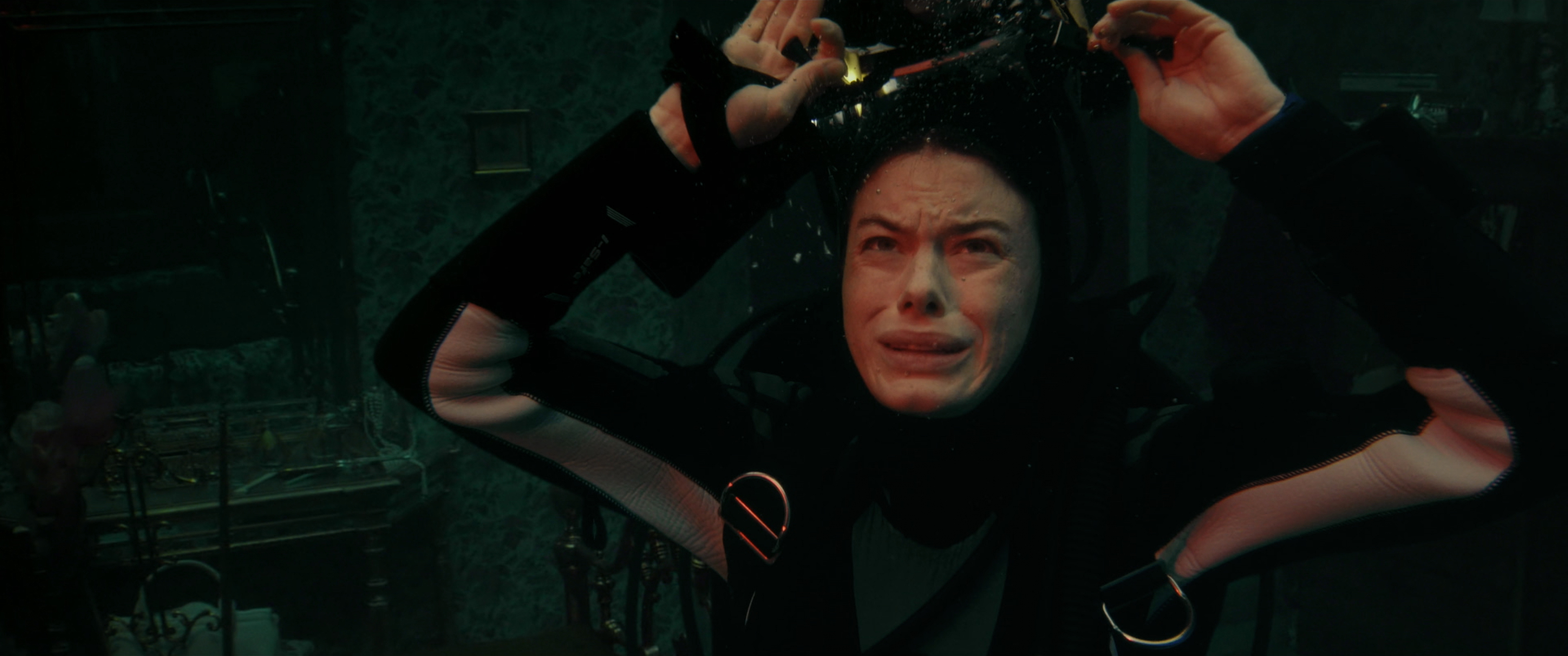
Q: What kind of musical palette did you provide for the score?
Raphaël Gesqua: Obviously, once the audience were immersed in the lake, I decided to restrain my sound field in a low-frequencies ambient register and a sound design style, in order to perfectly merge into diegetic environments. It was out of the question to make some traditional horror film music with raging strings or other screaming brasses. For this purpose, I tried to create all instruments mainly from real noises I recorded with my smartphone (I’m always doing that, even in vacations, each time I hear an interesting sound, I catch it, thinking to myself “hey, what an interesting color, it would make a great instrument, if electronically reworked a bit” etc.). So, I can say the score was nearly 100% electronically sculpted.
Q: How did you musically treat the supernatural entity that the main characters find in the underwater house?
Raphaël Gesqua: I used my own voice in many ways, as for instance in the Christ cross scene, where you can hear some kind of half human, half demonic moans, as Ben and Tina are clearing the door blocked by the immense cross. I wanted to make the audience feel uncomfortable, and suggest that something unhealthy was happening, as if “it” was waking up. Also, when [SPOILER] they discover the two bodies; the moans are back, louder and more tense, as if Ben and Tina had never been so close to a disastrous fate. Each time, you hear my voice. There are one or two other moments where I do this in the film.
Q: How would you describe your score’s thematic elements and their interaction?
Raphaël Gesqua: The entire movie has only one musical theme, which is fully developed in the (uncut version) end credits, but if you listen carefully you can hear it in a major light version, at the start, when Ben, Tina, and Pierre are walking in the forest to reach the coveted hidden lake. At the beginning of the musical process, you could hear it also in major, at the moment where Ben and Tina have just entered the lake, but it was decided, finally, to remain nearly silent in this part. You will probably be able to hear all hidden tracks in a future album release.
By the way, for an anecdote, I even composed (in a hurry, only one night) three of the diegetic pieces of music heard in the film: the pseudo rap on arrival at the lake vacation camp, the pseudo zouk, still in the camp when Ben and Tina are discussing, and finally the very short (only a few seconds) track of trash metal when Tina asks Ben, underwater, to put on some music. And in all three songs, even the vocals are from my own voice. You have to know how to give of yourself in emergency cases 😀
Q: What do you feel has been most unique about this score for you?
Raphaël Gesqua: Well, I don’t really know if I’ve done anything unique with this one, as it’s not for me to say, but I would say it’s a score that tries to blend in entirely with the sound environment, without saying to the audience “hey the music is playing, so please be afraid,” and certainly in the service of the film, not in the service of the composer. Also, I tried to create sounds you don’t hear in the real world, which is something I love to try, to tinker and sculpt sound textures, and come up with something never heard before.

Q: How do you find scoring horror films, as opposed to other types of films you have composed?
Raphaël Gesqua: Composing for horror films (or horror videogames, which I hope I’ll do in the future) is a great opportunity for us composers to try things that we never even dreamed of with “conventional” films, because we can, for example, use huge dissonances, create new experimental sounds, and thus transport the audience at other emotional levels by making them hear things that never seemed to have existed before. This is priceless, so I still hope to do horror scores for a long time in the future.
Thanks to Raphaël Gesqua for taking the time to discuss his experiences scoring THE DEEP HOUSE with me.


